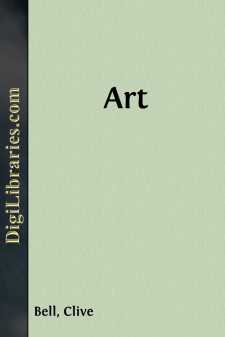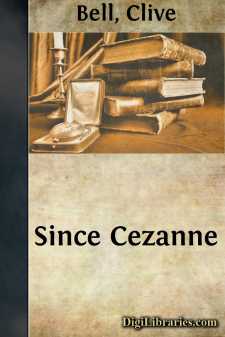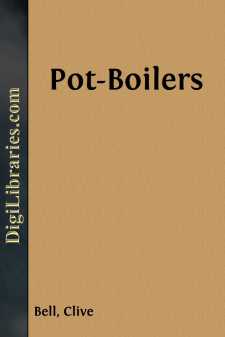Categories
- Antiques & Collectibles 13
- Architecture 36
- Art 48
- Bibles 22
- Biography & Autobiography 815
- Body, Mind & Spirit 144
- Business & Economics 28
- Children's Books 18
- Children's Fiction 14
- Computers 4
- Cooking 94
- Crafts & Hobbies 4
- Drama 346
- Education 58
- Family & Relationships 59
- Fiction 11829
- Games 19
- Gardening 17
- Health & Fitness 34
- History 1378
- House & Home 1
- Humor 147
- Juvenile Fiction 1873
- Juvenile Nonfiction 202
- Language Arts & Disciplines 89
- Law 16
- Literary Collections 686
- Literary Criticism 179
- Mathematics 13
- Medical 41
- Music 40
- Nature 179
- Non-Classifiable 1768
- Performing Arts 7
- Periodicals 1453
- Philosophy 65
- Photography 2
- Poetry 896
- Political Science 203
- Psychology 44
- Reference 154
- Religion 515
- Science 126
- Self-Help 85
- Social Science 82
- Sports & Recreation 34
- Study Aids 3
- Technology & Engineering 59
- Transportation 23
- Travel 463
- True Crime 29
Clive Bell
Clive Bell (1881–1964) was a British art critic and writer, best known for his association with the Bloomsbury Group. He developed the theory of "significant form," which argues that the aesthetic value of art lies in its formal qualities rather than its representational content. Bell's influential book "Art" (1914) expounded this theory, emphasizing the importance of pure visual form in creating aesthetic emotion. He was married to Vanessa Bell, the sister of Virginia Woolf, and his ideas significantly shaped modernist thought on art and aesthetics.
Author's Books:
Sort by:
by:
Clive Bell
I THE AESTHETIC HYPOTHESIS It is improbable that more nonsense has been written about aesthetics than about anything else: the literature of the subject is not large enough for that. It is certain, however, that about no subject with which I am acquainted has so little been said that is at all to the purpose. The explanation is discoverable. He who would elaborate a plausible theory of aesthetics must...
more...
by:
Clive Bell
SINCE CÉZANNE With anyone who concludes that this preliminary essay is merely to justify the rather appetizing title of my book I shall be at no pains to quarrel. If privately I think it does more, publicly I shall not avow it. Historically and critically, I admit, the thing is as slight as a sketch contained in five-and-thirty pages must be, and certainly it adds nothing to what I have said, in the...
more...
by:
Clive Bell
FOREWORD Dear Geoffrey Whitworth,—Considering for how many ages how many clever people have been complaining of their publishers, you might have supposed that no device for getting one of them into a scrape could have been left untried. Yet, so far as I can remember, no author has had the bright idea of denouncing his publisher, particularly, and by name, as accessory before the fact. I am willing to...
more...




